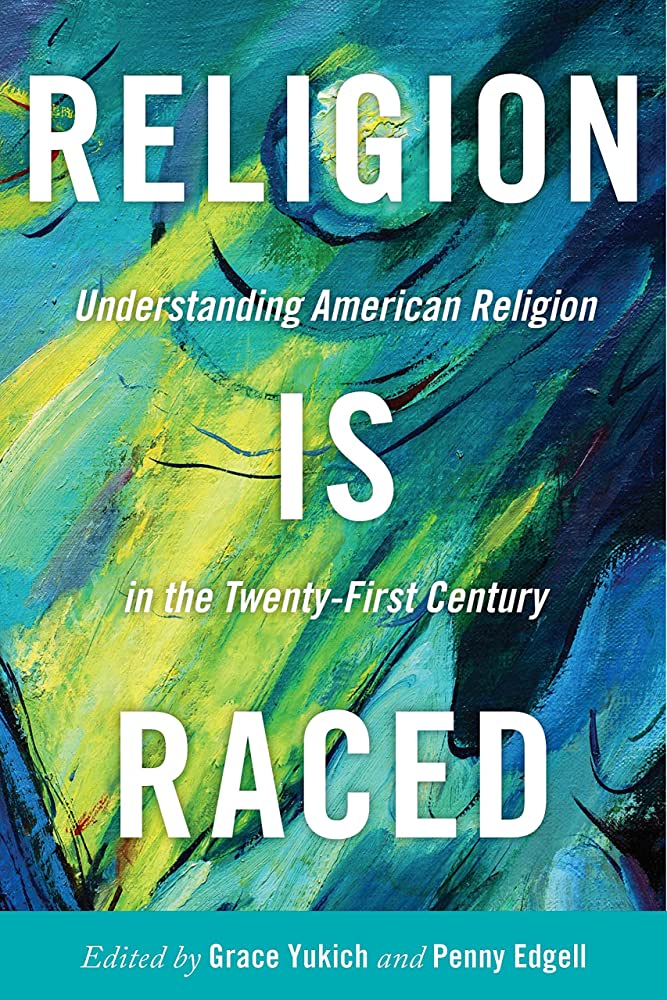Reviewed by Jauhara Ferguson, Graduate Student, Sociology
Religion is Raced: Understanding American Religion in the Twenty-first Century is an edited volume of articles written by scholars in the field of sociology of religion. The editors, Grace Yukich and Penny Edgell, compiled the book out of a desire to push sociologists of religion to take seriously the theoretical and empirical impact of race. In an interview with the Reading Religion Salon, they shared that they were both attendees of a sociology of religion conference, and they were each frustrated with how race was not a central factor in how the presenting scholars understood religion, particularly as it related to sociopolitical changes occurring within U.S. society. After this conference, Yukich and Edgell invited sociologists of religion to contribute to an edited volume that outlined the impact that race has on religion in American society.
The main aim of the text is to highlight the centrality of race to the sociological study of religion. The book argues that within sociology, studies of religion are often examined from the perspectives of White Protestant Christians. Additionally, studies of nonreligious people and communities are limited and typically do not consider non-White secular communities or perspectives. The book aims to address these literature gaps through the examining the relationship between race and American religion with regards to U.S. politics, gender and sexuality, social class, immigration, and survey methods. Central to the book is the belief that “race is the most important aspect of inequality in the U.S. and is closely linked with religion” (Yukich and Edgell 2020: 2). Each chapter diligently lays out the diverse ways that race and power intertwine with religion to reproduce racial, class, and gender inequalities.
The book makes its strongest contributions to the study of race, religion, and politics. Most of the chapters analyze how religion is used in U.S. politics to advance racial goals. The authors are largely concerned with understanding how religion has been politicized in the context of the Trump presidency and the U.S. political climate since Trump’s election. While there is some analysis of the historical ways that race has been used by religious communities to promote political aims, much of this work focuses on the contemporary U.S. political moment. One notable contribution the book makes is to the consideration of Black secularism and politics. In chapter three, the book illustrates the way that Black atheists and secular humanists are ambivalent about White secular aims to ensure the complete secularization of American society. Instead, Black secularism is politically motivated by a humanist concern for racial and social justice. Because of this, Black secular humanists acknowledge the important role that religion has historically played in Black social and political movements and look to ways Black religious and non-religious communities can collaborate and build coalitions to advance the well-being of Black people. Similarly, the book’s discussion of survey methods also explores the statistical gaps in the way scholars understand race in relation to religion. In this section the authors outline the various ways that survey methods overlook the existing connections between religion and race. Whether by ignoring the stigma of atheism among racial minorities and women, disregarding the extent of ethnic variation in Muslim communities, or assuming all religions easily map on to Protestant religious forms (eg. attendance, conceptions of God, etc.), sociologists can miss key aspects of religion when survey designs does not center or account for race.
Other sections of the book provide important empirical examples of how racial inequality reproduces gender and class inequality within religious communities. Chapter seven examines how national contexts shape the racial processes and gendered experiences of Muslim women in the United States and France. By using an intersectional approach to the study of religion, the authors illustrate how religion is racialized both within and outside of Muslim communities which impacts gender roles and practices. Similarly, chapter nine shows how the United States has shaped a Buddhist-inspired mindfulness movement that unwittingly perpetuates racism through the privileging the well-being of White wealthy corporate leaders and organizations. Notably, this chapter is one of a few in the book at explicitly names racism and engages with sociological theories of U.S. racism.
While the book makes important contributions to the study of race and religion, it generally does not address racism and how religion perpetuates or contributes to racism head on. Throughout the book, race is discussed as a variable more than it is examined as a tool of power. While there are a few chapters that explicitly address the connections between racism and religion, the book misses an opportunity to draw theoretical connections between the sociology of race and religion. Nevertheless, the book does consider the way that racial inequality perpetuates class divisions in religious communities through material wealth, privilege, and social distance. The book also provides important, albeit limited, examples the potential religious communities have in advocating for racial justice and cross-racial collaboration among both migrant and native-born communities in the United States.
Overall, this text is an important contribution to the sociology of religion. This book accomplishes Yukich and Edgell’s goal of pushing religion scholars to take race seriously. Sociologists of race might also consider how studies of religion aid our understanding of racism and inequality, particularly as it relates to non-Christian communities. Future research should expand this inquiry to examine a wider range of non-Christian communities and immigrant religious communities.

